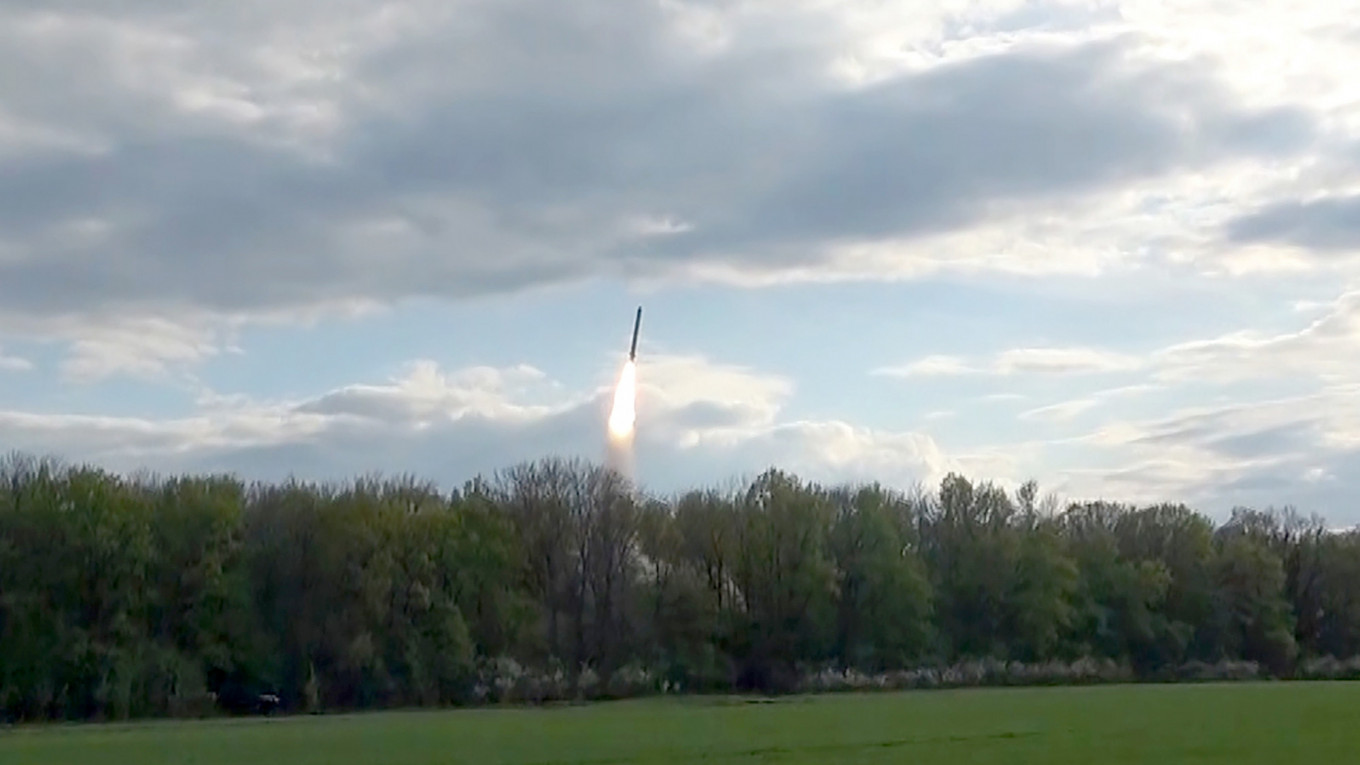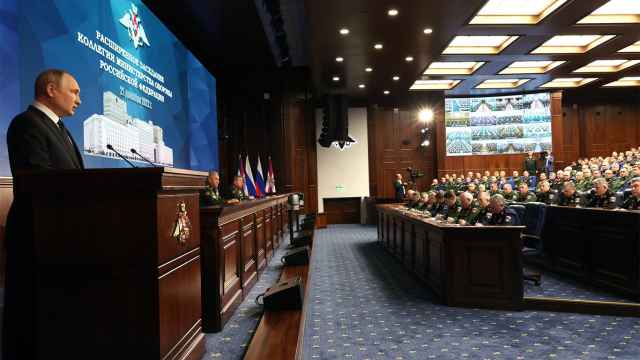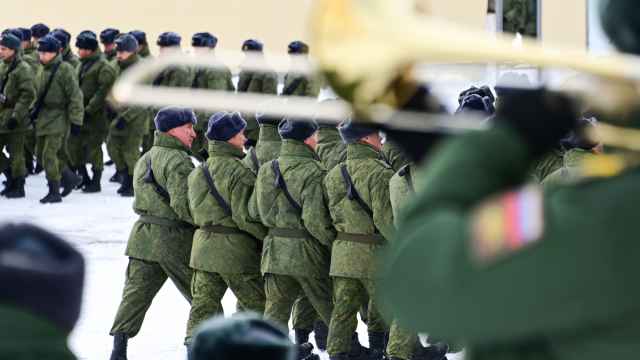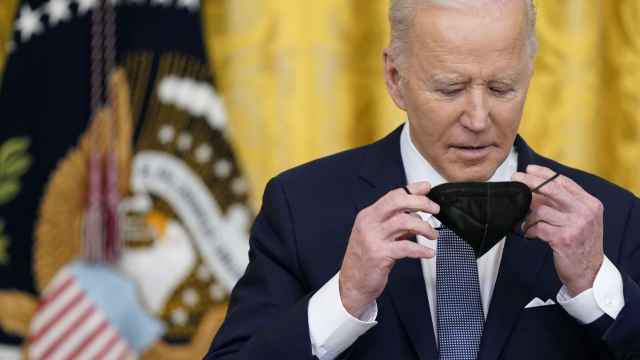Russia said Wednesday its forces had carried out simulated nuclear missile strikes in the western exclave of Kaliningrad on the border with the European Union.
The announcement came on the 70th day of Moscow's military action in the pro-Western country, with thousands killed and more than 13 million displaced.
After sending troops to Ukraine in late February, Russian President Vladimir Putin has made thinly veiled threats about Russia's willingness to deploy tactical nuclear weapons.
During Wednesday's war games, Russia practiced "electronic launches" of nuclear-capable Iskander mobile ballistic missile systems near Russia's borders with EU members Lithuania and Poland, the Defense Ministry said in a statement.
The Russian forces practiced single and multiple strikes at targets imitating missile systems, airfields, defended infrastructure, military equipment and command posts, according to the statement.
The units involved also practiced "actions in conditions of radiation and chemical contamination."
More than 100 servicemen took part in the drills.
Russia placed nuclear forces on high alert shortly after the start of the invasion of Ukraine.
Putin has warned of a "lightning-fast" retaliation if the West directly intervenes in the Ukraine conflict.
In recent days, Russian state-owned media has attempted to make the use of nuclear weapons more palatable to the public.
"For two weeks now, we have been hearing from our television screens that nuclear silos should be opened," Russian newspaper editor and Nobel Peace Prize laureate Dmitry Muratov said Tuesday.
A Message from The Moscow Times:
Dear readers,
We are facing unprecedented challenges. Russia's Prosecutor General's Office has designated The Moscow Times as an "undesirable" organization, criminalizing our work and putting our staff at risk of prosecution. This follows our earlier unjust labeling as a "foreign agent."
These actions are direct attempts to silence independent journalism in Russia. The authorities claim our work "discredits the decisions of the Russian leadership." We see things differently: we strive to provide accurate, unbiased reporting on Russia.
We, the journalists of The Moscow Times, refuse to be silenced. But to continue our work, we need your help.
Your support, no matter how small, makes a world of difference. If you can, please support us monthly starting from just $2. It's quick to set up, and every contribution makes a significant impact.
By supporting The Moscow Times, you're defending open, independent journalism in the face of repression. Thank you for standing with us.
Remind me later.






